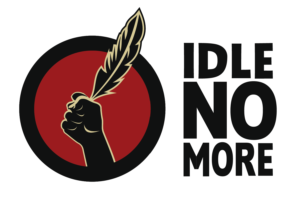Powerful New Report Released – Red Women Rising: Indigenous Women Survivors in Vancouver’s Downtown Eastside – Idle No More
“We need to keep families together. Colonization and missing and murdered Indigenous women has broken families. The children left behind by missing and murdered Indigenous women are mostly in foster care and then when they age out they end up on the street. The violence against missing and murdered Indigenous women continues with their children who are also violated and made vulnerable.” – from the Red Women Rising report
The Downtown Eastside Women’s Centre (DEWC) has just released Red Women Rising: Indigenous Women Survivors in Vancouver’s Downtown Eastside based on the lived experience, leadership, and expertise of Indigenous survivors. This comprehensive report is the culmination of a participatory process with 113 Indigenous women and 15 non-Indigenous women regarding the National Inquiry into Missing and Murdered Indigenous Women and Girls.
Violence against Indigenous women, girls, trans and two-spirit people is one of the most pressing human rights issue in Canada today. We know that the over-representation on homicides, poverty, homelessness, child apprehensions, police street checks, incarceration, and overdose fatalities is not a coincidence; it is part of an infrastructure of gendered colonial violence. Colonial state practices target women for removal from Indigenous lands, tear children from their families, enforce impoverishment, and manufacture the conditions for dehumanization.
Red Women Rising: Indigenous Women Survivors in Vancouver’s Downtown Eastside is an extraordinary report with Indigenous women survivors at the center. Indigenous women in the DTES—a neighbourhood known as ground zero for violence against Indigenous women—are not silent victims, statistics, or stereotypes. This unprecedented work shares their powerful first-hand realities of violence, residential schools, colonization, land, resource extraction, family trauma, poverty, labour, housing, child welfare, being two-spirit, police, prisons, legal system, opioid crisis, healthcare, and more.
Authored by Carol Muree Martin (Nisga’a and Gitanyow) and Harsha Walia with 128 collaborators, the compelling stories, rigorous research, and holistic recommendations within the 220-page report drastically and urgently shifts the lens from pathologizing poverty towards amplifying resistance to and healing from all forms of gendered colonial violence.

